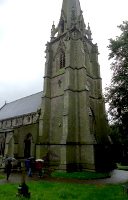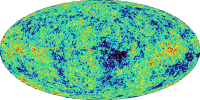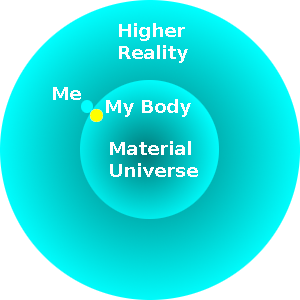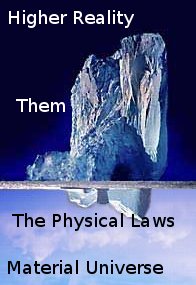
Ch03: Footnotes
The Lunar Cycle
Ancient Texts
Bible Anomalies
The Gospel
Tax & Tithing
Holy Spirit
Fuzzy Overview
Language Barrier
Life After Death
Human Destiny
Religon/Disclaimer
Salvation
Tick-Box Forms
Vida Após da Morte
During one phase of my life I was, what would be generally regarded as, a very religious person. I studied the Bible with a fanatic intensity. Consequently, in the context of this book, I feel I must now state my history and clarify my present position regarding religious belief. [Português]
 When I was young, my immediate family did not attend any kind of church, although my extended family had a staunch traditional affiliation to the Church of England. I was therefore sent to a strong Church of England primary school and was a regular choir boy at the main Church with which my school was associated. My maternal grandfather, on the other hand, was a humanist. He once told me he didn't believe in God, although what he said about it never amounted to more than a sentence. He did, however, have a practical interest in science, especially radio. He used to build his own short-wave receivers. Perhaps it was his influence that inadvertently triggered my intellectual outlook to develop along pragmatic scientific lines.
When I was young, my immediate family did not attend any kind of church, although my extended family had a staunch traditional affiliation to the Church of England. I was therefore sent to a strong Church of England primary school and was a regular choir boy at the main Church with which my school was associated. My maternal grandfather, on the other hand, was a humanist. He once told me he didn't believe in God, although what he said about it never amounted to more than a sentence. He did, however, have a practical interest in science, especially radio. He used to build his own short-wave receivers. Perhaps it was his influence that inadvertently triggered my intellectual outlook to develop along pragmatic scientific lines.
As a child and adolescent, partaking in acts of worship seemed to be something that was expected of one, but which personally left me cold. I was never able to grasp the reason for vainly repeating a formal ritual week after week, and year after year. Furthermore, the teachings themselves seemed to be a confusing mix of logically incompatible beliefs. They came across to me as some kind of uneasy fusion between Bible stories and pagan folklore. They preached the words, sentences and verses from the Bible but believed something quite alien to what these words, sentences and verses actually said. My failure to make any sense of this, finally turned me off religion altogether. I became a confirmed atheist.
This left a vacuum within my conscious mind which I could see was filled for others by their religious beliefs and rituals. Nevertheless, I felt that if these people could have been completely honest with themselves, they would have had to concede that the empty rituals and the never-quite-reconcilable beliefs with which they filled their vacuums, never really fulfilled them. Nevertheless, the vacuum within my own mind continued to make its presence felt. I had a strong sense that the material universe could not be the whole of reality. There had to be something beyond.
 Consequently, in my early twenties, during my 3 year degree course, I began a personal investigation into the so-called non-conformist religions to see if there was anything in any of them that could fulfil my vacuum, and also make sense. This investigatory quest was triggered by a challenge from George, a Christian colleague. I had been conversing at length with 3 colleagues. The other 2 were Atheists. We discussed life, the universe and everything — including, of course, religion. George invited me and the other 2 Atheists to a head-to-head debate at the Christian Union — a group that met in a small room at the college during the lunch hour.
Consequently, in my early twenties, during my 3 year degree course, I began a personal investigation into the so-called non-conformist religions to see if there was anything in any of them that could fulfil my vacuum, and also make sense. This investigatory quest was triggered by a challenge from George, a Christian colleague. I had been conversing at length with 3 colleagues. The other 2 were Atheists. We discussed life, the universe and everything — including, of course, religion. George invited me and the other 2 Atheists to a head-to-head debate at the Christian Union — a group that met in a small room at the college during the lunch hour.
After the head-to-head debate, George privately issued me with a challenge. He said that if I were to sincerely seek a solution to my vacuum problem in Christianity, I would find it. He told me to investigate all the denominations and sects I could find. I would thereby 'be led' to the one among them that was the true Church of God. I took the challenge, which was to last for 14 years.
The various religious groups I encountered seemed to share one thing: a propensity for exaggerated blind emotion. This invariably manifested itself as a kind of group psychosis in which individuals lost themselves in a swirl of 'praising the Lord'. Through emotional singing. In endless contentless prayers spontaneously incanted in quivering sanctimonious voices 'thanking the Lord for his love, sacrifice and salvation'. But this also left me cold. I desperately wanted to fill the vacuum in my mind. I was prepared to undergo whatever emotional surgery was needed to do it. But I was just not an emotional person. I proved incapable of psyching myself into becoming one, or of 'trusting in the Lord' to make me one.
 I had a keen interest in short-wave radio and one cannot sweep the short-wave bands for very long without encountering a whole cacophony of religious broadcasts. They arrive from every corner of the world. Of every type and flavour. They even infested the pirate radio stations that once broadcast on the medium waveband from ships anchored off the coasts of the British Isles just outside the 3-mile limit of British territorial waters. [Probably the most famous of these was Radio Caroline that can still be heard live today at this link.] To my increasingly fastidious mind, all these religious broadcasts projected the same ritualism and emotive nothingness. All, that is, except one called The World Tomorrow.
I had a keen interest in short-wave radio and one cannot sweep the short-wave bands for very long without encountering a whole cacophony of religious broadcasts. They arrive from every corner of the world. Of every type and flavour. They even infested the pirate radio stations that once broadcast on the medium waveband from ships anchored off the coasts of the British Isles just outside the 3-mile limit of British territorial waters. [Probably the most famous of these was Radio Caroline that can still be heard live today at this link.] To my increasingly fastidious mind, all these religious broadcasts projected the same ritualism and emotive nothingness. All, that is, except one called The World Tomorrow.
This one seemed to have a pragmatic practicality to which I could relate. I started to listen to it regularly. This was early in 1966 during my final year at college. I mentioned to George about the radio programme to which I had begun to listen. He started to listen too. But he did not approve of it. He quickly stopped listening. I continued to listen.
In 1966, after listening to the programme for two years, I sent for and studied the free magazines and literature offered on The World Tomorrow programme. I also enrolled on, and completed, the programme's free Bible correspondence course. Seven years later (in 1973) I was baptised into the church behind the broadcast. As a member of this church I attended their local services every week for a further seven years. Then, in 1980, I left. During the 14 years that I was associated with this church almost all my spare time was taken up with intense Bible study. My wife had a positive dislike for this church and would have nothing to do with it. The reason I left was not because of my wife's attitude. Neither was it because of any violent differences in fundamental beliefs. It was for a very practical down-to-earth reason.
 This church produced its radio broadcasts in well equipped in-house studios and had them transmitted by a plethora of radio stations all over the world. It had an international team of reporters feeding the writers of its magazines and correspondence course, which were produced and printed at its own in-house press facilities. It ran a multi-campus international college, which provided the ministers for the church's local congregations world-wide. All these, together with various other endeavours were financed by the 'tithes and offerings' contributed by ordinary church members.
This church produced its radio broadcasts in well equipped in-house studios and had them transmitted by a plethora of radio stations all over the world. It had an international team of reporters feeding the writers of its magazines and correspondence course, which were produced and printed at its own in-house press facilities. It ran a multi-campus international college, which provided the ministers for the church's local congregations world-wide. All these, together with various other endeavours were financed by the 'tithes and offerings' contributed by ordinary church members.
The church taught its members that they had an obligation to pay tithes to the church ministry according to the tithing system given to ancient Israel. Each member had to give 10% of his income to the ministry and put by another 10% to finance his travel, accommodation and incidental expenses to attend three main annual festivals. Every third year he had to give another 10% of his income to provide for the church's widows. Thus each member was required to give up 23·3% of his gross income. This rule was later relaxed to require only 23·3% of one's net income.
Neither the government tax system nor free market forces took account of the fact that church members had to exist on 23·3% less than other people. These authorities assume that one is employing the full net amount of one's pay for the purpose of supporting one's family and home, and for providing the means required to function and present oneself in a manner appropriate to one's occupation. This did not seem to be a problem to members who had their own businesses or who were in executive positions. However, for those on low and middle incomes (including myself) it became quite miserable, although few had the courage (or as the ministry would have it 'the disloyalty') to speak out and openly admit it.
Much of the church membership was made up of 'single' men. Some were simply not married. Others (of which I was one) were married but their wives and children would have nothing to do with the church. The misery of such a depleted income was fine if simply to be an obedient member of the church was one's quest in life, and provided it did not cause others to suffer hardship. But it did cause others to suffer. Tithing caused my wife and daughter to have to do without far too much.
Nevertheless, I was determined to explore this apparent opportunity to fill the vacuum in my mind. The church taught that God always rewarded the faithful tither. So I stuck with it. I became very unpopular both with my immediate and extended family. After 7 years of hardship I decided that I had given it long enough. My own personal experience was proof that it had not worked — at least, not for me. I stopped tithing. I stopped paying that mandatory tenth of my income to this church.
Tithing was one of the most central doctrines of this church. I could not therefore remain a member. As soon as I left, I had, in effect, that 10% of my income to spend on my family and home. I was also able to freely prioritize how to spend the other 10% that I had previously been required to set aside to attend the 3 annual festivals. I was also free from having to act as a second social security system for the church's widows, although paying the third tithe was something I had never actually got around to doing.
I have to admit that, despite the financial hardship it caused, the seemingly rational doctrines of this church did, from the beginning, provide me with a vital psychological crutch. It helped me to cope with the continual stress of the repeated relapses of my wife's extremely disruptive mental illness. Perhaps this stress was what rendered me susceptible and unquestioning to the church's smooth-talking radio evangelists.
Now though, with some of this newly available money, I was able to expand a business I had tried to start 4 years earlier. It prospered over the next 12 years and I was able to extend my home sufficiently to accommodate my family properly. It also enabled us to take some good holidays together for the first time in many years.
Once I left this church I realised that, while I had been in it, I had had an ever-present sense that something about it was not quite right. But I did not know what it was. It wasn't the people. They were genuine enough. It wasn't the ministry. Although to us lay members they seemed to live uncommonly well on our tithes (as did the widows), I feel in retrospect that they taught what they genuinely thought was right according to the text of the Bible, and that what transpired as a result, simply happened.
I now believe that what I had sensed as never being quite right was the stand-point from which the church viewed the Biblical socio-economic system and the context in which they implemented it. Being Americans, the church ministry could interpret what they read in the Bible only in terms of their American way of life. They could implement what they read about only in terms of the capitalist socio-economic model with which they were familiar.

 The socio-economic circumstances of the ancient Israelite farming his given portion of the Land of Canaan cannot be systemically compared with, or directly mapped onto, those of the dispossessed wage labourer in a modern capitalist economy. The mechanisms through which the one and the other gains his needs and luxuries of life are fundamentally different. Consequently, paying tithes from one's wage income is also fundamentally different from giving tithes from the increase of one's land.
The socio-economic circumstances of the ancient Israelite farming his given portion of the Land of Canaan cannot be systemically compared with, or directly mapped onto, those of the dispossessed wage labourer in a modern capitalist economy. The mechanisms through which the one and the other gains his needs and luxuries of life are fundamentally different. Consequently, paying tithes from one's wage income is also fundamentally different from giving tithes from the increase of one's land.
Although I left this church, I retained respect for the practical approach it maintained towards reading and uncovering the notions and doctrines that appeared to be buried within the text of the Bible. They revealed what to my analytical mind seemed a cogent candidate for that 'higher reality' which I felt had to exist beyond the constraints of physical law. But I had to reject their dangerous and irresponsible attempts to implement those ancient ways within today's completely incompatible socio-economic environment.
Though far less dominant than it had been in the other religious groups I had encountered, the 'emotional thing' was still there. The singing of hymns. Ministers praying aloud to congregations in services and with individuals in private. I even adhered strictly for many years to a decree that all members should rise at an unearthly hour of the morning every day to put in a solid hour of personal prayer. I truly wanted it to work.
But it didn't. I had to face the fact that I am not an emotional person. I am simply not made that way. Whether this be my genetic inheritance or be due to my formative environment I don't know. But that's the way I am. As soon as I left the church, the emotional stuff left me, so I must now describe myself as non-religious. Nevertheless, I soon discovered that the sense of moral justice I had always possessed had become elevated almost to a sense of mission. However, this was destined to lie dormant until the painful realities of 1990s unemployment stirred my indignation.
 From the mid-1990s my Bible-based religiosity began to fade. By 2007 it had all but disappeared. It was at this time that I noticed that the vacuum I had previously experienced in my mind was no longer there. What was this vacuum? After much thinking and honest reflexion, I arrived at the secure conclusion that the vacuum in my mind had been simply the unknown, specifically my unknown: what was unknown to me. And that was a lot. It was practically the whole universe.
From the mid-1990s my Bible-based religiosity began to fade. By 2007 it had all but disappeared. It was at this time that I noticed that the vacuum I had previously experienced in my mind was no longer there. What was this vacuum? After much thinking and honest reflexion, I arrived at the secure conclusion that the vacuum in my mind had been simply the unknown, specifically my unknown: what was unknown to me. And that was a lot. It was practically the whole universe.
Certainly, by this time, it had become self-evident to me that human perception is both limited and fallible. Since I am human, my perception of the reality in which I exist must therefore be limited and fallible. Consequently, I know that my understanding of the reality in which I exist does not — and cannot — penetrate very far into that reality, no matter how long I may continue to live and learn. So the vacuum of the vast unknown, which lay beyond the boundary of my limited understanding — and the even vaster unknowable which lay beyond that — had been the aching void that I feared and needed to fill.
 Like so many, throughout all human history, I had tried to fill this vacuum in my mind with God. But where had I heard of God: this supreme and eternal conscious intelligence — this divine personage — who lies beyond human detection yet is known to have created and sustain all that is? Had I observed him, through my limited and fallible perception — via my five human senses — within this realm of reality in which I exist?
Like so many, throughout all human history, I had tried to fill this vacuum in my mind with God. But where had I heard of God: this supreme and eternal conscious intelligence — this divine personage — who lies beyond human detection yet is known to have created and sustain all that is? Had I observed him, through my limited and fallible perception — via my five human senses — within this realm of reality in which I exist?
No. All I had come to know about God had come indirectly from an ancient text called the Bible. The way I perceive the universe, via my five senses, is pretty well bound to be wrong to some large degree. Notwithstanding, what I am observing — namely the universe — is true. It is bound to be true. In fact, it defines truth. It is simply the way things are. On the other hand, information emanating from a book is not reality. It is merely a symbolic representation of reality. Or, at least, it purports to be so. It could therefore be a misrepresentation. It could be a lie, or worse still, a devious mixture of truth and error.
This is well evinced in many places within this ancient text. It relates a structural view of the world which has long since incontrovertibly proved to be wrong. This alone discredits its divine origin. Any God would know the spherical structure of the Earth and it would not be beyond the wit of such a divine intelligence to explain it truthfully to our ancient forefathers. In other places, the personality of this divine being is described such as to be at once that of a loving patriarch and that of a psychopathic tantrum-throwing toddler. Is it remotely credible to suppose that such an immature mentality could have created a universe ordered and regulated by such beautiful and sophisticated physical laws?
This schizophrenic personality is continued into the New Testament. Jesus tells his followers to: "Love your enemies, bless them that curse you, do good to them that hate you, and pray for them which despitefully use you, and persecute you". Matthew 5:44. Yet, portraying himself in the parable of the talents he says, "But those mine enemies, which would not that I should reign over them, bring hither, and slay them before me". Luke 19:27. Adepts are always quick to spiritualise away the logical inconsistencies with some kind of cockamaimy explanation. Nevertheless, in all honesty, I can only see these two statements emanating from somebody with a very serious personality disorder.
On the other hand, did Jesus really say these two conflicting things the way they are now presented in English in the Bible? How much have their meanings been bent and warped by translation errors, misunderstandings and creative editing by the religious dogmatists and political spin-doctors of antiquity? Perhaps what he really said was consistent after all. Who can know?
 Although I did not start my fanatic study of the Bible until I was in my mid twenties, I had become aware of vast inconsistencies in the religious doctrines I'd been taught, from when I was about 10 years old. At the same time, I had a great propensity for direct observation. I pondered how people, cars and clouds moved. I watched the seasons and the cycles of life. I latched into reality. My text was the real world. I did not trust what people said. I had to verify what they said for consistency with what I observed reality to be.
Although I did not start my fanatic study of the Bible until I was in my mid twenties, I had become aware of vast inconsistencies in the religious doctrines I'd been taught, from when I was about 10 years old. At the same time, I had a great propensity for direct observation. I pondered how people, cars and clouds moved. I watched the seasons and the cycles of life. I latched into reality. My text was the real world. I did not trust what people said. I had to verify what they said for consistency with what I observed reality to be.
I was, at that time, too young to identify that what I did not trust was symbolic communication. I trusted only direct observation. For me, anything conveyed by symbol had to be verified as being compatible with direct observation. I did not trust books. Apart from the Bible and rather a lot of programming reference manuals, I surmise that I cannot have read more than seven books in all my 70 years on this planet. I certainly never trusted newspapers. I have never bought a newspaper. I am not against reading. I just find it difficult because it puts upon me the burden of validating all that I read. And with just cause.
This fastidiousness is probably what raised the ever-present red signal within my mind during my religious years. This is what was continually telling me that something was not quite right. Religion does not allow for validation. I was being asked — nay commanded — to simply accept what I was being told. And I could plainly see that what I was being told was not consistent with what I observed of the real world and the real universe. I was in continual conflict with myself. So why did I persist with religion for so long?
 My motive — like that of practically all religious people — was a selfish one. I have a precious and exclusive possession, which I never want to lose. I have a natural irresistible inherent drive to protect and keep it. But there is an invincible marauding monster, which, by all accounts, sooner or later, will take it from me. The monster is death. The precious possession is my life. I want to keep my life beyond death. I want it forever.
My motive — like that of practically all religious people — was a selfish one. I have a precious and exclusive possession, which I never want to lose. I have a natural irresistible inherent drive to protect and keep it. But there is an invincible marauding monster, which, by all accounts, sooner or later, will take it from me. The monster is death. The precious possession is my life. I want to keep my life beyond death. I want it forever.
My observation of nature, the Earth and the universe offered no solace. Only religion proposed a solution to my selfish desire. If I did just accept the doctrines and beliefs of religion, then those doctrines and beliefs promised me eternal life. I would still exist — and still be me — after my physical body had ceased to function and had decomposed back into basic organic compounds in the soil.
But the moral observer within me — my inherent conscience — had to ask the question: was my selfish desire for eternal continuance a meritorious motive? Was it a laudable reason for abandoning the truth of direct observation and replacing it with an inconsistent labyrinth of fragmented fiction? My conscience had no doubt. Its answer was "no". Eternal life was not worth the price of abandoning truth. I had to abandon my selfish motive.
So what was the truth? Where could I find it? I believed in what I directly observed. However, I could only observe what was accessible to my perception via my five physical human senses. These, however, can only sense what is known as the physical (or material) universe. The reach of the five human senses can be extended and diversified by scientific instruments. These convert the effects of phenomena that are beyond the human senses into corresponding effects that can be felt by the human senses. Nevertheless, even scientific instruments cannot venture beyond the material universe. I was therefore, for the time being at least, restricted to seeking the truth within the bounds of the material universe.
![Generic atheist symbol, the result
of a 2007 AAI contest, created by
Diane Reed. [public domain] Generic atheist symbol, the result of a 2007 AAI contest, created by Diane Reed. [public domain]](images/disclaim/Atheismsymbol_endorsed_by_AAI.png) A purely material universe could not include God. So was I now back where I started? Had I subconsciously reverted to atheism? It would be very convenient. It would free me from the slavish subservience to the inflexible and illogical obligations of a religious creed. And, after all, could the oblivion of death really be any worse than not having been born yet? If so, it can't be too bad. I didn't suffer before I was born. Paradoxically, I don't even remember before I was born.
A purely material universe could not include God. So was I now back where I started? Had I subconsciously reverted to atheism? It would be very convenient. It would free me from the slavish subservience to the inflexible and illogical obligations of a religious creed. And, after all, could the oblivion of death really be any worse than not having been born yet? If so, it can't be too bad. I didn't suffer before I was born. Paradoxically, I don't even remember before I was born.
However, I discovered many philosophical and scientific anomalies in atheism too. The overwhelming problem with atheism is that it relies on the Theory of Evolution to explain the existence of life, including the self-aware conscious entity that I perceive myself to be. In this, it fails catastrophically. Unfortunately, the systemic validity of evolution can be upheld neither from the standpoint of observation nor from reason. Furthermore, I find no logical basis for supposing that the dimensions and content of universal reality should end abruptly at a horizon that is defined by nothing more substantial than the limit beyond which physical human senses cannot reach. I think it arrogant to suppose that it should.
The material universe is ordered and governed by a set of rigorous physical and mathematical laws. These suggest the presence of an underlying intelligence within its fabric. But this intelligence does not appear to constitute a conscious entity — a person. It is not a being with whom I can converse and relate. The universe does not pass the Turing Test.
But I do! I pass the Turing Test. I am a conscious thinking being who can, along with seven billion others on this planet, truthfully say, "I perceive, therefore I exist". But there is no scientific theory which can, necessarily and sufficiently, explain my conscious intelligence in terms of the laws of mathematics and physics that have been abstracted from the observed behaviour of the material universe.
This suggests that, although it depends on the physical brain and body to communicate with this physical universe, the conscious entity, that I am, may inhabit dimensions that are above and beyond what my physical facilities are able to sense or perceive. How else could it be possible for me — and indeed all human beings — to imagine realms of fairies and fiction, which could never exist within the dimensions of a material universe governed by the known physical laws.
What is it, within me, which thirsts for an explanation of what is beyond the reach of my physical senses? From whence comes my pressing need to seek knowledge of what — if anything — lies beyond the dimensions of the material universe and beyond my death? Why am I concerned with it? Why does it matter? Whatever the physical limitations of my physical brain and its software (my subconscious mind), it seems that my conscious self is pre-equipped with notions of things beyond the physical. Why should this be? How could it acquire such capability if its only evolutionary input is from the physical world? I simply have to recognise that this thirst is there and that it is overwhelmingly strong.
This leaves me with a currently insurmountable unknowable. What is beyond the material universe? What lies beyond the reach of the 5 physical human senses and the scientific instruments which extend them? I shall call it the Higher Reality.
The supremely ordered logical systematic structure of the material universe, and the laws that govern it, suggest — or perhaps even demand — a designer of supreme intelligence. The presence of such a personage is nowhere apparent to our physical senses or instruments. Consequently, if he exists, this supreme conscious intelligence must inhabit a realm that is beyond, and outside of, the material universe. He must live in — or perhaps even be — that Higher Reality.
 But that's also where I am. The conscious entity, that is me, cannot see me. I can only look outwards from me into the material universe. In this material universe I can see — and interact with — the physical bodies of other seemingly conscious entities like myself. But I cannot see the other conscious entities themselves either. They too, with me, must exist inside the dimensions of that Higher Reality. Yet we only know of each other's existence through the restrictive constraints of the material universe.
But that's also where I am. The conscious entity, that is me, cannot see me. I can only look outwards from me into the material universe. In this material universe I can see — and interact with — the physical bodies of other seemingly conscious entities like myself. But I cannot see the other conscious entities themselves either. They too, with me, must exist inside the dimensions of that Higher Reality. Yet we only know of each other's existence through the restrictive constraints of the material universe.
So we cannot see ourselves or each other: only the physical bodies through which others have access to the material dimensions. So if the supreme intelligence, whom we call God, exists, he does not appear to have the physical facility, namely a body, by which we could know and communicate with him.
 If God exists, why doesn't he communicate with us? I am sure that if he be a supreme intelligence, and if he wished to talk to us, he would not do so through an ancient enigmatic tome of inconsistent ambiguous verbiage, which nobody — if they are honest about it — can understand. So, why does he not communicate? Is this because he does not want us to know him yet? Perhaps we are not ready. Perhaps we have yet to undergo another quantum leap in our spiritual evolution. Perhaps many. And perhaps, in his wisdom, he knows that this can only be achieved by leaving us to our own painful devices. Perhaps this is why he does not intervene to stop the physical torment of this present life.
If God exists, why doesn't he communicate with us? I am sure that if he be a supreme intelligence, and if he wished to talk to us, he would not do so through an ancient enigmatic tome of inconsistent ambiguous verbiage, which nobody — if they are honest about it — can understand. So, why does he not communicate? Is this because he does not want us to know him yet? Perhaps we are not ready. Perhaps we have yet to undergo another quantum leap in our spiritual evolution. Perhaps many. And perhaps, in his wisdom, he knows that this can only be achieved by leaving us to our own painful devices. Perhaps this is why he does not intervene to stop the physical torment of this present life.
If God does not exist, then nothing matters. But if he does, we have yet to meet him. Either way, my leaning is towards the idea that I should, in all things, follow my inherent conscience. It is also that I should be honest. That I should not bury my head in some steaming pile of poppycock that sacrifices open truth for a promise to reward a selfish desire for eternal life.
As far as I can see, the conscious entity, which I am, already exists in a permanent and protected state within the dimensions of the Higher Reality. In all the physical universe, only the material mantle of biological life possesses the capacity to die.
So where am I now? I said that, at the final fading of my faith in 2007, the vacuum I had previously experienced in my mind was no longer there. What had filled it? Something very strong and substantial had replaced the faded religiosity. And, unlike my previous religious beliefs, it did not have the ever-present after-taste of something that was never quite right. But what was this substantial something?
It was my newly evolving honesty. It was my resolve to recognise that, at any given time, I knew so far and no further. It was my acceptance of the X-factor. To realise that there is a large area of being — which I have called the Higher Reality — about which I know nothing. This does not forbid me from speculating its nature and what resides within it. But I have absolved myself of the need to fabricate idle dogmatic beliefs about it for the purpose of satisfying my vain desires.
 I see and marvel at the laws, which govern the universe. These would seem to me to evince the existence of a supreme conscious entity who devised and upholds these laws. Yet I cannot see, or otherwise sense, him. [Perhaps he is not singular. Perhaps they are a male and female pair. This would be more consistent with what I see reflected in nature, all the way from primary particles to human beings.]
I see and marvel at the laws, which govern the universe. These would seem to me to evince the existence of a supreme conscious entity who devised and upholds these laws. Yet I cannot see, or otherwise sense, him. [Perhaps he is not singular. Perhaps they are a male and female pair. This would be more consistent with what I see reflected in nature, all the way from primary particles to human beings.]
My view is somewhat like an inverted iceberg. Visible below the threshold of the Higher Reality is the law governed material universe. Above the threshold, outside the dimensions of the material universe, are they the supreme beings who are sustaining and governing what I see.
But, try as I might, I cannot reconcile my notion of a supreme creator-sustainer to that of the benign schizophrenic psychopath portrayed in the Judeo-Christian Bible. I simply cannot envisage myself as one of an innumerable multitude, engaging in an eternal act of deference to a deity, which has a clear case of narcissistic personality disorder. On the contrary, my wish for an eternal afterlife would be to be one of a multitude of immortal beings, linked with each other in a network of perfect egalitarian relationships.
My current vision of God is not as a person or persons but as an all-pervading essence of intelligence and emotion that permeates the universe and imparts to each his conscious 'self-being'. It is fairly coincident with the ancient Greek philosophers' notion of Ο Λόγος [The Logos] and not too far removed from Unitarian beliefs.
Consequently, I suppose I could now be categorized as a Deist like Tom Paine and most of the founding fathers of the United States of America. On the other hand, because I call it an unknowable, perhaps I could be categorized equally as an Agnostic. I do not, however, think such labels adequately describe anybody. I value independence of thought. For this reason, I am not associated with any group or organization in this regard. Besides, I may change my mind at any time in the light of new observations, experiences, knowledge and thought. And I reserve my inalienable right to do so without the permission, or by the leave, of any other individual, collective or authority.